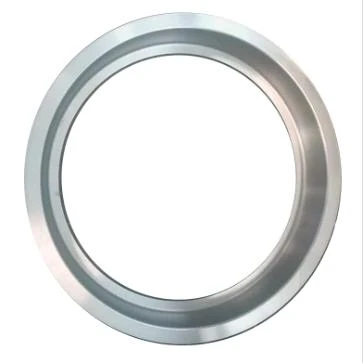- Afrikaans
- Albanian
- Amharic
- Arabic
- Armenian
- Azerbaijani
- Basque
- Belarusian
- Bengali
- Bosnian
- Bulgarian
- Catalan
- Cebuano
- China
- China (Taiwan)
- Corsican
- Croatian
- Czech
- Danish
- Dutch
- English
- Esperanto
- Estonian
- Finnish
- French
- Frisian
- Galician
- Georgian
- German
- Greek
- Gujarati
- Haitian Creole
- hausa
- hawaiian
- Hebrew
- Hindi
- Miao
- Hungarian
- Icelandic
- igbo
- Indonesian
- irish
- Italian
- Japanese
- Javanese
- Kannada
- kazakh
- Khmer
- Rwandese
- Korean
- Kurdish
- Kyrgyz
- Lao
- Latin
- Latvian
- Lithuanian
- Luxembourgish
- Macedonian
- Malgashi
- Malay
- Malayalam
- Maltese
- Maori
- Marathi
- Mongolian
- Myanmar
- Nepali
- Norwegian
- Norwegian
- Occitan
- Pashto
- Persian
- Polish
- Portuguese
- Punjabi
- Romanian
- Russian
- Samoan
- Scottish Gaelic
- Serbian
- Sesotho
- Shona
- Sindhi
- Sinhala
- Slovak
- Slovenian
- Somali
- Spanish
- Sundanese
- Swahili
- Swedish
- Tagalog
- Tajik
- Tamil
- Tatar
- Telugu
- Thai
- Turkish
- Turkmen
- Ukrainian
- Urdu
- Uighur
- Uzbek
- Vietnamese
- Welsh
- Bantu
- Yiddish
- Yoruba
- Zulu
ডিসে. . 24, 2024 00:16 Back to list
Exploring the Efficiency of Cross Flow Condensers in Thermal Systems and Applications
Understanding Cross Flow Condensers An Overview
Cross flow condensers are vital components in various industrial applications, notably in power generation and refrigeration systems. Their operation, efficiency, and design play significant roles in ensuring optimal performance and energy savings. This article aims to provide a comprehensive understanding of cross flow condensers, their functionality, advantages, and considerations in design.
What is a Cross Flow Condenser?
A cross flow condenser is a type of heat exchanger where the hot refrigerant or steam flows horizontally across a vertical flow of cooling water or air. This arrangement contrasts with other types of condensers, such as counterflow condensers, where the two fluids flow in opposite directions. The distinct design of cross flow condensers allows for efficient thermal exchange, making them a popular choice in various applications.
Principle of Operation
The primary function of a condenser is to remove heat from a vapor, allowing it to condense into liquid form. In a cross flow condenser, the hot vapor enters the condenser and flows horizontally while the cooling medium, typically water or air, flows vertically. As the two fluids interact, heat transfer occurs, facilitating the condensation process.
The effectiveness of heat transfer in cross flow condensers is heavily influenced by the temperature differential between the two fluids. The greater the difference, the more efficient the heat exchange. This configuration allows the hot vapor to lose heat rapidly, transforming it into liquid, which can then be recirculated in the system or further processed.
Advantages of Cross Flow Condensers
1. Compact Design Cross flow condensers are generally more compact than other designs, making them suitable for applications with limited space. Their efficient use of space allows for easier installation and maintenance.
2. Versatile Application These condensers can be used in various sectors, including power plants, chemical processing units, and HVAC systems. Their versatility makes them an attractive option for many industrial processes.
3. Improved Heat Exchange Due to their design, cross flow condensers can provide effective heat transfer with relatively low pressure drops, enhancing the system’s overall performance.
cross flow condenser

4. Limited Maintenance Requirements With fewer components and a simple design, cross flow condensers often require less maintenance than more complex systems. This characteristic can lead to reduced operational costs over the condenser's lifecycle.
5. Enhanced Efficiency By using a larger surface area for heat exchange, these condensers can achieve higher thermal efficiency, thus improving the overall energy efficiency of the system.
Design Considerations
While cross flow condensers offer various advantages, several design considerations must be taken into account to ensure optimal performance. These include
- Flow Rates The design must accommodate the necessary flow rates for both the vapor and the cooling medium. Improper flow rates can lead to inefficient heat transfer and possible operational issues.
- Material Selection The choice of materials is critical, as the condenser must withstand varying temperatures and pressures. Corrosion resistance and durability are key factors in material selection.
- Maintenance Access To capitalize on the low maintenance needs of cross flow condensers, designers should ensure that the unit allows easy access for inspections and service.
- Environmental Considerations The design should also consider environmental factors, such as the potential for scaling or fouling, which can impact efficiency and require additional cleaning processes.
Conclusion
Cross flow condensers represent a crucial component in many industrial applications, offering a range of benefits from compact design to improved heat exchange efficiency. Understanding their operational principles and design considerations is essential for engineers and designers looking to optimize systems for efficiency and performance. As industries continually seek out solutions for energy savings and sustainability, cross flow condensers will undoubtedly remain a significant player in the evolution of thermal management technologies. By leveraging their advantages, businesses can not only enhance operational efficiency but also contribute to more sustainable practices in their processes.
-
8mm Thin-Walled Cast Steel Manhole Cover Pallet Bottom Ring | Durable
NewsAug.04,2025
-
Premium Cast Iron Water Main Pipe: Durable, Corrosion-Resistant
NewsAug.03,2025
-
Durable Cast Iron Water Mains | AI-Optimized Systems
NewsAug.02,2025
-
High-Efficiency Propane Boiler for Baseboard Heat | Save Energy
NewsAug.01,2025
-
Premium Source Suppliers for Various Gray Iron Castings
NewsJul.31,2025
-
Durable Cast Iron Water Main Pipes | Long-Lasting
NewsJul.31,2025


